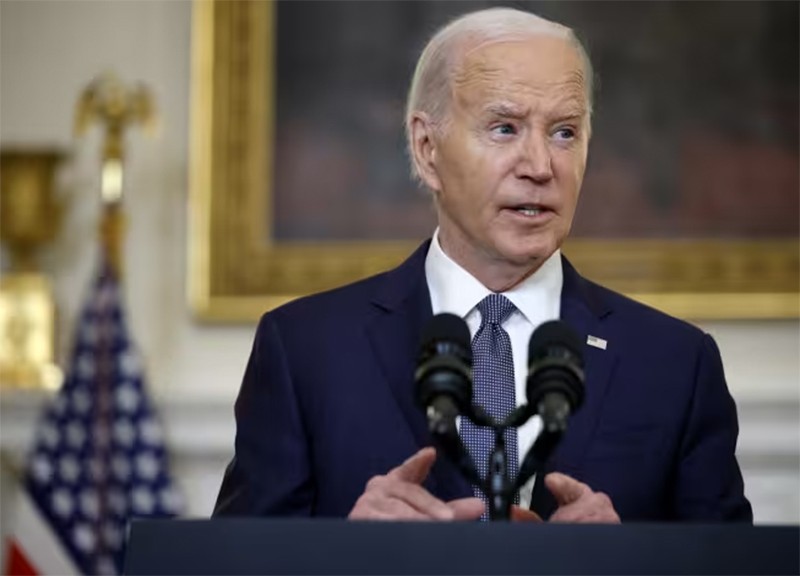
If Syria falls under control of Islamist militants it could bring further disorder to an inflamed region
By Michael R. Gordon. WSJ.
WASHINGTON—The unexpectedly rapid downfall of President Bashar al-Assad in Syria has turned the country’s future from a back-burner issue to a suddenly high-stakes concern for the departing Biden administration—and almost certainly for Donald Trump.
U.S. officials are scrambling to assess the intentions of the rebel groups that drove Assad into exile, especially Hayat Tahrir al-Sham, which is expected to play a pivotal role in whatever government emerges in Damascus but which is on the U.S. list of foreign terror ist organizations.
The best-case scenario would be a post-Assad Syria free from Iranian influence whose territory Tehran would no longer be able to use to send weapons to the militant group Hezbollah in Lebanon.
That could bring further sweeping changes to a Middle East already in flux, removing a key member of Tehran's so-called "axis of resistance," the coalition of countries and militias in Lebanon, Iraq, Syria and Yemen supported by Tehran to counter the U.S. and Israel.
But another scenario is possible: If Syria or large parts of it fall under control of Islamist militants hostile to the West or the state collapses entirely, it could bring further disorder to an already in flamed region.
For now, U.S. officials are uncertain what will happen and how much influence they have.
President Biden plans to speak to Middle East leaders as U.S. officials travel to the region in coming days to consult with Syria's neighbors and a range of Syrian anti- Assad groups, a senior Biden administration official said.
In seeking to shape the po litical outcome in what it says will be a process led by Syrians, however, the U.S. is starting from a disadvantage.
During Biden's presidency, the U.S. has focused on supporting Ukraine following Russia's invasion of the country and trying to bring an end to the fighting in Lebanon and Gaza, where Israel had battled Iran-backed militants.
Ending the bloody civil war
in Syria, which U.S. officials assumed was largely stalemated given Assad's backing from Hezbollah, Russia and Iran, hasn't been a White House priority.
"The Biden administration from Day One has purposely distanced itself from the Syria issue," said Charles Lister of the Middle East Institute, a Washington-based think tank. As a result, the extent and " the depth of the relationships that the U.S. holds with various actors that matter have decayed with time."
Following a meeting with his top national-security ad visers on Sunday, Biden described the turnabout in Syria as an important chance for its people and the region.
"As we all turn to the question of what comes next, the United States will work with our partners and the stake holders in Syria to help them seize an opportunity to man age the risk," Biden said.
Eager to recover respectability abroad and potentially open the door for interna tional aid, the leader of Hayat Tahrir al-Sham, Abu Mohammed al-Jawlani, who is a Sunni Muslim, has vowed to protect religious and ethnic minorities. The White House says those promises will be carefully scrutinized, as administration officials weigh how to engage with this and other rebel organizations.
"They are saying the right things now," Biden said. "But as they take on greater responsibility, we will assess not just their words but their actions."
The prospects for a transition to a new administration will depend to a large extent on whether rival factions - including Sunni groups and Kurdish and Alawite minorities - can avoid further conflict.
The U.S. has some 900 troops in eastern Syria whose mission is to work with the Kurdish-led Syrian Democratic Forces to battle Islamic State.
One worry is that Turkish-backed militias might try to exploit the situation by at tacking the Kurdish - commanded forces in northern Syria that Ankara has long opposed. In a call with his Turkish counterpart on Sunday, Defense Secretary Lloyd Austin said it was vital to avoid actions that could endanger U.S. forces and their SDF allies, the Pentagon said.
The developments may present the incoming Trump administration with an opportunity to roll back Iran's influence in the Middle East and step up pressure on Tehran to curtail its nuclear program. But U.S. intelligence has warned that the risk is growing that Iran might choose to build a nuclear weapon as its network of regional proxies weakens.
But in a Saturday message on X, Trump wrote about Syria: "This is not our fight. Let it play out. Do not get involved!"














